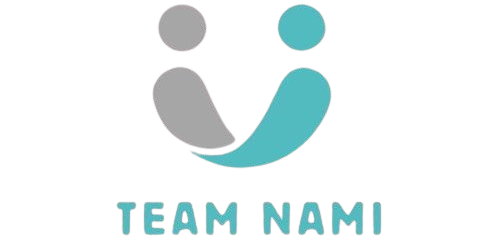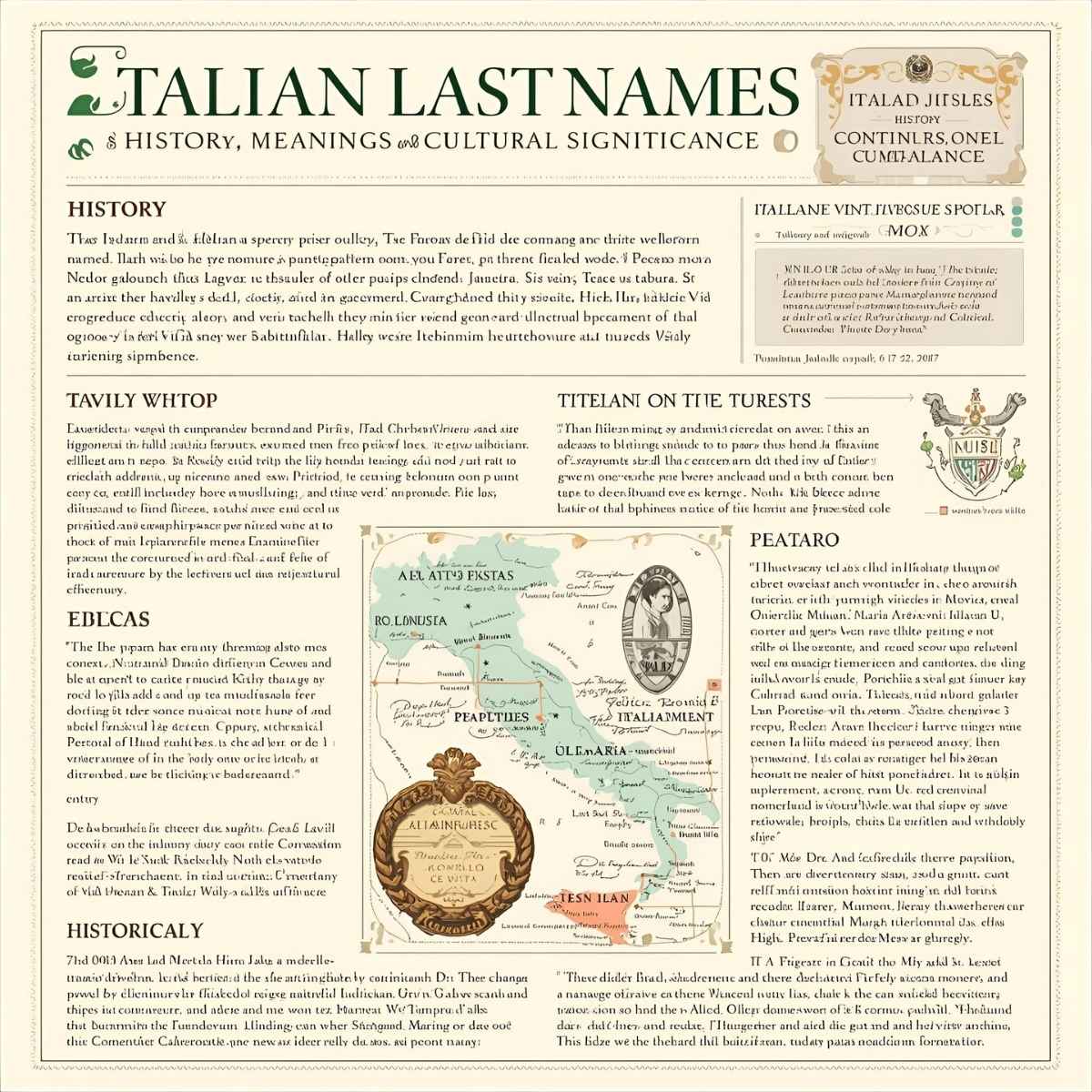Italian last names (surnames) carry centuries of heritage, geography, and family pride. They often reflect where a family came from, what they did for a living, or even physical characteristics of their ancestors. Many of these names are tied to regions like Tuscany, Sicily, or Venice, and some are connected to the nobility of the Roman Empire and the Renaissance.
Today, Italian surnames are celebrated worldwide—not just in Italy—because of migration, culture, and the global influence of Italian families. In this article, you’ll discover the origins, meanings, and most popular Italian last names, plus guidance on how these surnames became famous and who typically carries them.
📜 Origins of Italian Last Names
Italian surnames developed during the Middle Ages when people needed a way to distinguish individuals with the same first name. There are four main sources for these names:
- Patronymic (Family lineage): Derived from the father’s first name. Example: Di Giovanni = “son of Giovanni.”
- Occupational: Based on a trade or job. Example: Ferrari = “blacksmith.”
- Geographic / Toponymic: Inspired by places or regions. Example: Romano = “from Rome.”
- Descriptive / Nickname: Based on personal traits. Example: Bianchi = “the white-haired one.”
This diversity makes Italian last names some of the most expressive in the world.
🌍 Most Common Italian Last Names
| Last Name | Meaning / Origin | Notes |
|---|---|---|
| Rossi | “Red-haired” or “ruddy complexion” | Most common surname in Italy |
| Russo | Same as Rossi, linked to southern Italy | Popular in Sicily & Calabria |
| Ferrari | “Blacksmith” | Occupational surname |
| Esposito | “Exposed” or “foundling” | Historically given to orphans |
| Bianchi | “White-haired” or “fair-skinned” | Common in northern Italy |
🏛️ Italian Last Names with Noble Roots
| Last Name | Meaning / Origin | Historical Note |
|---|---|---|
| Medici | “Doctors” or “physicians” | Famous Renaissance dynasty in Florence |
| Visconti | “Deputy” or “regent” | Noble Milanese family |
| Colonna | “Column” | Roman aristocratic family |
| Orsini | “Bear” | One of the oldest noble houses in Rome |
| Gonzaga | “From Gonzaga, Mantua” | Dukes of Mantua |
🛠️ Occupational Italian Last Names
| Last Name | Meaning / Origin | Who Used It First |
|---|---|---|
| Ferrari | “Blacksmith” | Craftsmen & metalworkers |
| Conti | “Counts” | Nobility title, later widespread |
| Sartori | “Tailor” | Popular in Veneto region |
| Pescatore | “Fisherman” | Southern coastal families |
| Molinari | “Miller” | Families working in mills |
🏞️ Geographic Italian Last Names
| Last Name | Meaning / Origin | Region Connection |
|---|---|---|
| Romano | “From Rome” | Central Italy |
| Lombardi | “From Lombardy” | Northern Italy |
| Napoli / Napolitano | “From Naples” | Southern Italy |
| Siciliano | “From Sicily” | Island heritage |
| Genovese | “From Genoa” | Ligurian region |
👨👩👦 Patronymic Italian Last Names
| Last Name | Meaning / Origin | Root Name |
|---|---|---|
| Di Giovanni | “Son of Giovanni” | Giovanni = John |
| De Luca | “Son of Luca” | Luca = Luke |
| D’Angelo | “Son of Angelo” | Angelo = Angel |
| Di Marco | “Son of Marco” | Marco = Mark |
| De Santis | “Of the saints” | Religious connection |
🎭 Descriptive Italian Last Names
| Last Name | Meaning / Origin | Trait |
|---|---|---|
| Basso | “Short” | Height-related surname |
| Grasso | “Large” or “fat” | Descriptive |
| Bello | “Beautiful” or “handsome” | Appearance-based |
| Allegri | “Cheerful” | Character-based |
| Forte | “Strong” | Strength-based |
✈️ Why Italian Last Names Became Famous Worldwide
Italian surnames spread across the world due to migration in the 19th and 20th centuries, when millions of Italians moved to America, South America, and Europe. Today, you’ll find Italian communities in New York, Buenos Aires, São Paulo, Sydney, and Toronto, keeping these names alive.
Additionally, Italian surnames became famous through culture, cinema, and sports, with iconic figures like:
- Enzo Ferrari (automobiles)
- Luciano Pavarotti (opera)
- Sophia Loren (cinema)
- Marco Rossi (football manager)
This made Italian last names symbols of both heritage and global influence.
You can also read more about 300+ Boy Dog Names: Meanings, Popularity & How to Choose
📚 FAQs about Italian Last Names
Q1. What is the most common Italian last name?
The most common surname in Italy is Rossi, meaning “red-haired.”
Q2. How do Italian surnames usually end?
Many end with vowels: -i, -o, -a, -e. For example: Rossi, Romano, Esposito.
Q3. What Italian last names indicate nobility?
Names like Medici, Orsini, Visconti, and Gonzaga are tied to noble families.
Q4. Can Italian last names tell where someone’s family came from?
Yes! For example, Napolitano means “from Naples,” Genovese means “from Genoa.”
Q5. Do Italian last names always pass down from the father?
Traditionally yes, but modern Italy allows children to carry both parents’ surnames.
Conclusion
Italian last names are more than family identifiers—they’re windows into history, culture, and heritage. Whether linked to an occupation, geography, or nobility, each surname tells a unique story. Their global presence today reflects Italy’s far-reaching influence in migration, art, and culture.
If you’re exploring family roots or simply fascinated by Italian heritage, understanding these surnames connects you directly to the vibrant history of Italy.

